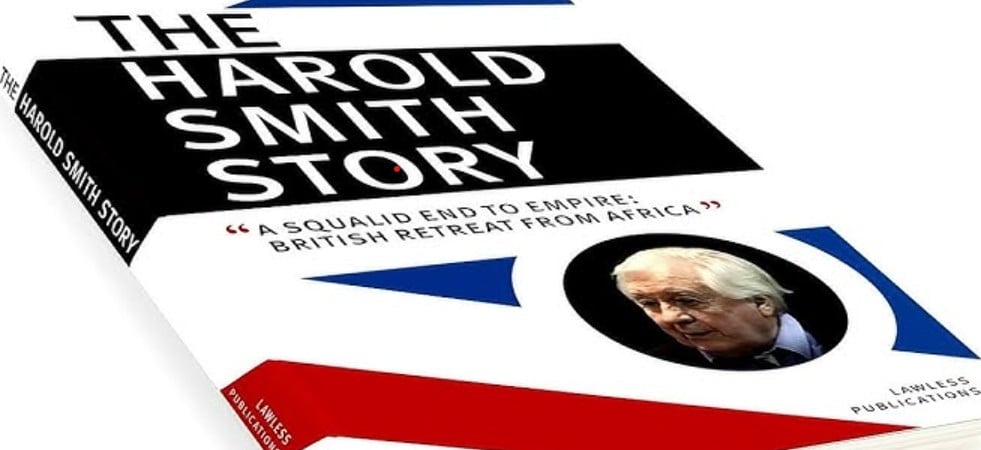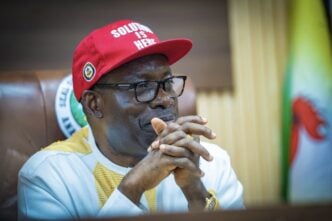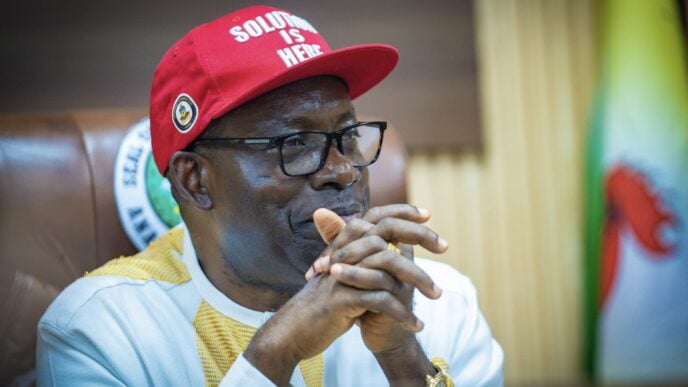On the eve of Nigeria’s 65th independence anniversary, I reflected on Harold Smith. He’s not widely known in Nigeria. And that’s probably to be expected for a man whom the British establishment ostracised for decades for daring to be different, before his death. He was everything the British colonial authorities didn’t want him to be, and he paid for it.
But for his book, The Harold Smith Story, published by Lawless Publications four years ago, Smith would have died with the knowledge of how a promising country was sabotaged by Britain, with consequences that would last for generations.
Sixty-five years after the Union Jack was lowered, many still speak wistfully of Nigeria’s “potential” for greatness, a potential that appears no less elusive today than it was when Smith arrived in Nigeria in 1955, fresh from Oxford and one year after he joined the British colonial office as a colonial officer.
Gone, but alive!
Advertisement
Smith is gone now. He died 14 years ago, but lived long enough to revisit Nigeria one year before the country celebrated its 50th anniversary. On that visit, he was quoted as saying, “My 20 years in Nigeria were certainly the best years of my life. Nothing I’ve done since has equalled that.”
This article is not mainly about him, even though he would have been more than worthy. It’s about Nigeria, about how Smith’s account of his Nigerian odyssey reveals many aspects of the country that we often overlook or underestimate, but which we must confront and overcome to make progress.
I’ll take a few of them – the system of government, the civil service, money politics, and corruption – all of which Smith covers extensively in his book, naming names and places and giving examples in many instances.
Advertisement
It’s the system, stupid!
Let’s start with the system of government. There are several accounts, of course, of how the British used and exploited indirect rule to foster division by promoting the domination of one section of the country over the other, using local rulers who were easier to manipulate. But not many of the accounts explain how this technique was implemented.
Here, in his own words, was what Smith said about the state of affairs in what was then, broadly speaking, Northern and Southern Nigeria: “When the British invaded the Moslem North and realised that a stable feudal and authoritarian system of government was already in place, they decided to rule through the Emirs…the basic idea was that the Northern rulers could do as they pleased so long as they did not offend the British.
“The restrictions placed on the Emirs were not as arduous, and so long as taxes were collected and there was no disorderly behaviour, the Emirs not only had a free hand but were assisted by the British administrators and, if necessary, by the force of the British army.”
Advertisement
Tax and spend
The taxes did not benefit the ordinary people; they were shared between the Emirs and the colonial authorities in such a brazen manner that, as of 1947, there was not a single secondary school in the North. Ignorance enabled feudal lordship. But as long as the Emirs and the British colonial authorities were happy, the system was preserved at all costs, including delaying self-government for as long as possible.
When it became untenable, according to Smith, the British government went to extraordinary lengths to rig elections. “The British government determined beforehand to whom it would be handing the keys of the Nigerian kingdom. They were the rulers of the North, who had long been favoured by the British.”
Crooked civil service
Advertisement
Another point is the civil service. A common fetish is that General Murtala Muhammed’s massive purge of the civil service in 1975 is to blame for the decline. That purge had its adverse effects, no doubt, but there were others after Muhammed’s, notably in 1984 and 1999. However, it is generally believed that Nigeria’s civil service was solid and incorruptible until 1975.
Smith’s book suggests that even though we may choose to look the other way, corruption in the civil service dates back to the colonial era, often portrayed as a time of innocence. And here, Smith names names without mincing his words.
Advertisement
When it dawned on the British that the squalid legacy of colonial rule was no longer sustainable, they began to identify Nigerians to groom for leadership roles in the civil service, the backbone of the colonial administration.
Naming names
Advertisement
One of such Nigerians, according to Smith, was Francis Nwokedi, who later became permanent secretary of the Ministry of Labour and Nigeria’s foremost civil servant.
Though Nwokedi (who would later play a significant role in Ironsi’s government) was an extraordinarily brilliant and self-assured man, Smith described him as “a stooge of the British” who not only betrayed his people during the shooting of the coal miners in Enugu but also as a conduit for the illegal funding of the National Council of Nigeria and the Cameroons (NCNC) using government funds. This practice is still rampant today.
Advertisement
If complicity in politics by civil servants dates back to the 1950s, the hijacking of state resources by politicians to enrich themselves remains a persistent issue. The British could neither trust Obafemi Awolowo nor stand his independent-mindedness.
They also suspected that, left to its own, the Northern Peoples Congress (NPC) would lose the federal election of 1959. So, they used politicians like Festus Okotie-Eboh to prop up the insolvent NCNC, whose leadership had wrecked the African Continental Bank, in an alliance with the NPC.
This quote by Smith might interest those hoping for a clean election, with transparent party financing and an impartial electoral arbiter: “In 1956…the British government opened a conduit which saved the NCNC from bankruptcy…the extent of British philanthropy, or extortion, is revealed in the following figures. Between January 1957 and July 1960, that is the period which included the federal election of 1959, the NCNC had spent approximately £1.2 million. During the same period, its income from all resources had not exceeded £500,000.’”
Okotie-Eboh, whose first appointment as Labour Minister was “like a child presented with the keys of a sweet shop,” sold government assets and pocketed the money without fear of a reprimand because he was as serviceable to British political interests as he was to his own. The British handed over the reins of power to a significant number of notorious politicians who, over the years, would make a fine art of notoriety.
That Cameron joke
I’ve often joked that when former British Prime Minister David Cameron told President Muhammadu Buhari that Nigeria was fantastically corrupt, a good response might have been from Smith’s story. “I suppose the most corrupt act of all is colonialism itself…Why had the Governor General (of Nigeria) chosen such corrupt politicians?
“Why did civil servants not refuse to cooperate with corrupt ministers? It was evident that the ministers could not carry out these corrupt deeds without cooperation from the civil service…It was clearly official policy to let the ministers be corrupt.”
Of course, it’s been 65 years since, and Nigeria is only one of the over 80 percent of present-day independent countries that were colonised. How and why did other countries with a similar legacy, including India, Singapore, Brazil, and Malaysia, manage to turn things around?
Looking forward
Colonised countries that overcame setbacks usually did so because they had better institutions, more diversified economies, visionary leadership, and stronger social cohesion.
In contrast, many African countries, including Nigeria, have inherited fragile states, extractive economies, and deep divisions, which have been exacerbated by global power struggles and internal governance failures. If the British handed Nigeria a poisoned cup, the flawed and bloated federal system has not helped matters.
Yet, the Harold Smith story is not a death sentence. What we do with it might be.
Ishiekwene is the editor-in-chief of LEADERSHIP and author of the book Writing for Media and Monetising It
Views expressed by contributors are strictly personal and not of TheCable.













